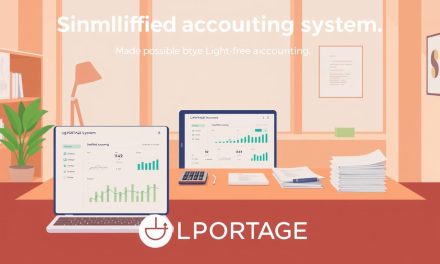
Have you ever felt the need for flexibility in your career while still seeking stability? In France, the demand for adaptable work arrangements is growing, offering professionals a unique chance to explore diverse industries. Whether you’re transitioning between roles or looking to gain experience, temporary employment can be a stepping stone to long-term success.
France’s labor market is evolving, with industries like logistics, hospitality, and healthcare increasingly relying on skilled employees for short-term assignments. These roles not only provide flexibility but also allow you to develop new skills and expand your network. It’s an opportunity to grow while maintaining control over your career path.
Navigating this landscape can seem daunting, but with the right guidance, you can turn temporary assignments into permanent opportunities. This guide will help you understand the legal framework, practical strategies, and unique advantages of temporary employment in France.
Table of Contents
Key Takeaways
- France’s labor market offers diverse opportunities for flexible work arrangements.
- Temporary roles provide a chance to gain experience in various industries.
- Skilled professionals can leverage these positions to build long-term careers.
- Understanding legal rights and protections is crucial for temporary workers.
- Many temporary assignments can lead to permanent employment opportunities.
What Is a Temporary Job? Understanding the Basics
https://www.youtube.com/watch?v=Q68IMruMNS8
Are you curious about how flexible work arrangements operate in France? Temporary employment offers a unique structure that benefits both professionals and businesses. It’s a system designed to provide short-term solutions while ensuring legal protections for all parties involved.
Definition and Key Characteristics
Temporary employment involves making employees available to client companies through specialized agencies. This setup requires two key contracts: a supply contract between the agency and the client, and an assignment contract between the agency and the worker. These agreements ensure clarity and compliance with French labor laws.
One critical aspect is the temporary nature of these roles. Assignments are designed to address specific needs, such as seasonal demand or project-based work. They cannot permanently fill positions tied to normal business activities.
The Triangular Relationship: Agency, Employer, and Employee
The temporary employment system operates through a three-party dynamic. The agency acts as the official employer, managing contracts and ensuring worker protections. The client company, or host employer, provides the work environment and tasks. The employee fulfills the assigned role while receiving support from the agency.
This structure ensures that all parties share responsibilities. For example, both the agency and the host employer must prioritize the health, safety, and training of the worker. Adequate training and safety protocols are essential to protect temporary workers.
| Role | Responsibilities |
|---|---|
| Agency | Manages contracts, ensures legal compliance, and provides worker support. |
| Host Employer | Provides work environment, tasks, and collaborates on safety and training. |
| Employee | Fulfills assigned tasks while adhering to workplace policies. |
Understanding this triangular relationship is key to navigating temporary employment successfully. It ensures that workers are protected, agencies are accountable, and businesses can meet their short-term needs effectively.
How a Temporary Job Works in France

Understanding the mechanics of short-term roles in France can open doors to diverse career paths. These positions are structured to meet specific business needs while ensuring legal protections for workers. Whether you’re exploring new industries or seeking flexibility, this system offers a balanced approach to professional growth.
Assignment Contracts and Legal Requirements
Every short-term role in France begins with a clear assignment contract. This document outlines the duration, tasks, and terms of the role. It ensures both the worker and the company are aligned on expectations. Legal requirements mandate that these contracts specify details like working hours, compensation, and end-of-assignment benefits.
French labor laws also set maximum durations for these contracts. For example, seasonal roles can last up to 18 months, while assignments abroad may extend to 24 months. Workers are entitled to benefits like paid leave and transportation allowances, ensuring fair treatment throughout their tenure.
Common Industries for Temporary Employment
Short-term roles are prevalent in several key industries. Manufacturing leads the way, accounting for 28% of such positions. Hospitality and logistics follow closely, with 22% and 18% respectively. These sectors often rely on flexible work arrangements to manage seasonal demand or project-based needs.
- Manufacturing: Roles in production lines and quality control.
- Hospitality: Positions in hotels, restaurants, and event management.
- Logistics: Opportunities in warehousing, transportation, and supply chain management.
These industries not only provide immediate opportunities but also serve as gateways to long-term careers. By gaining experience in these fields, professionals can build valuable skills and expand their networks.
Benefits of Temporary Work for Professionals

Exploring flexible work arrangements can transform your career trajectory in France. Short-term roles offer unique advantages, from skill development to networking opportunities. These positions are not just stopgaps but stepping stones to long-term success.
Flexibility and Career Growth Opportunities
One of the most valued aspects of short-term roles is flexibility. Professionals can choose assignments that align with their schedules and personal needs. This adaptability enhances work-life balance while allowing you to explore diverse industries.
Additionally, these roles provide a platform for career growth. By working in different environments, you gain new skills and insights. This experience can make you a more versatile and attractive candidate for future opportunities.
Gateway to Permanent Employment (CDI Proposals)
Short-term assignments often lead to permanent roles. In France, 34% of such positions convert to CDI proposals. Employers use these roles to assess fit before offering long-term contracts.
The process is structured to protect workers. Employers must provide written notification of a CDI proposal at least one month before the assignment ends. This ensures transparency and gives you time to consider your options.
- Leverage short-term roles to access closed job markets.
- Gain professional development through multiple assignments.
- Maintain unemployment benefits while testing different companies.
| Benefit | Impact |
|---|---|
| Flexibility | Enhances work-life balance and adaptability. |
| Skill Development | Builds expertise across industries. |
| Networking | Expands professional connections. |
| CDI Proposals | Opens doors to permanent roles. |
By embracing short-term roles, you can unlock a world of opportunities. These positions are more than just temporary—they are a pathway to long-term career success.
Finding Temporary Jobs Through Agencies
Securing flexible work opportunities in France often begins with leveraging specialized agencies. These organizations act as intermediaries, connecting professionals with companies in need of short-term talent. By understanding their role and the resources they offer, you can streamline your search and land the right assignment.
Role of Temporary Employment Agencies
Temporary employment agencies play a crucial role in the French labor market. They act as the official employer for workers, managing contracts, payroll, and legal compliance. This setup ensures that both workers and companies are protected under French labor laws.
These agencies also provide support throughout the assignment. From onboarding to training, they ensure workers are well-prepared for their roles. Additionally, they handle negotiations with the host company, ensuring fair terms and conditions.
Top Platforms and Resources in France
France boasts a robust network of platforms and resources for finding temporary work. Leading agencies like Adecco, Randstad, and Manpower dominate the market, offering a wide range of opportunities across industries. These platforms are known for their reliability and extensive reach.
Emerging digital platforms like Qapa and StaffMe are also gaining traction. These tools use advanced algorithms to match professionals with suitable assignments, making the process faster and more efficient.
| Agency | Market Share |
|---|---|
| Adecco | 23% |
| Randstad | 18% |
| Manpower | 15% |
When choosing an agency, verify its certifications under French labor regulations. Accredited agencies adhere to strict standards, ensuring fair treatment and legal compliance. Specialized agencies for fields like engineering, healthcare, and executive roles can also provide tailored opportunities.
To maximize your chances, create a compelling agency profile. Highlight your skills, experience, and availability. Negotiate assignment terms to ensure they align with your career goals. With the right approach, temporary employment agencies can be a gateway to long-term success.
Legal Rights and Protections for Temporary Workers
Understanding your legal rights is essential when navigating flexible work arrangements in France. These protections ensure fair treatment and safety, giving you confidence in your professional journey. Let’s explore the key aspects of working hours, safety protocols, and contract termination.
Working Hours and Remuneration Rules
In France, working hours are capped at 35 hours per week, with overtime compensated at 25% for the first 8 hours and 50% beyond that. This ensures a balanced workload and fair pay for your efforts.
The « égalité de rémunération » principle guarantees equal pay for equivalent roles. Whether you’re in a short-term or permanent position, you’re entitled to the same base salary, bonuses, and allowances. This rule protects your financial rights and promotes fairness in the workplace.
Safety Regulations and Employer Responsibilities
Your safety is a top priority. Employers must provide mandatory safety training before hazardous assignments and ensure access to protective equipment. If you face imminent danger, you have the right to stop work without penalty.
High-risk industries, like manufacturing and construction, have strict health and safety protocols. These measures protect you from workplace hazards and ensure a secure environment.
« Safety is not just a regulation; it’s a commitment to your well-being. »
Handling Contract Termination
If your assignment ends early, you’re entitled to a minimum 7-day notice period. This gives you time to prepare for your next steps. Additionally, you’ll receive a 10% ICCP allowance at the end of your contract, unless you’re on an open-ended agreement.
In cases of improper termination, you have legal recourse options. Both the agency and the client company share joint liability, ensuring accountability. This protects your rights and provides a safety net during transitions.
| Responsibility | Details |
|---|---|
| Equal Pay | Same salary, bonuses, and allowances as permanent employees. |
| Safety Training | Mandatory training and protective equipment for hazardous roles. |
| Termination Notice | 7-day minimum notice period for early contract termination. |
By understanding these protections, you can confidently pursue flexible work arrangements in France. Your rights are safeguarded, ensuring a fair and secure professional experience.
Challenges and How to Overcome Them
Flexible work arrangements come with unique challenges that require strategic planning and awareness. While they offer opportunities for growth and adaptability, professionals must navigate issues like income fluctuations and access to essential benefits. Understanding these challenges is the first step toward building a stable and fulfilling career.
Precariousness and Income Stability
One of the most common concerns for temporary workers is irregular income. Surveys show that 68% of professionals in these roles experience fluctuating pay. This can make financial planning difficult, but there are strategies to manage it effectively.
Creating a budget that accounts for lean periods is essential. Setting aside a portion of earnings during high-income months can provide a safety net. Additionally, exploring professional insurance options can offer extra security for independent contractors.
Navigating Benefits and Social Protections
Access to benefits and social protections is another critical area. Temporary roles often come with gaps in healthcare coverage or unemployment benefits. Understanding the « période de carence » rule is vital—this waiting period can affect your eligibility for certain supports.
Maintaining continuous healthcare coverage is possible through options like private insurance or transitional plans. Unions like CGT-Travail Temporaire also provide collective bargaining power, ensuring fair treatment and access to resources.
« Planning ahead and staying informed are your best tools for navigating the complexities of flexible work. »
- Build a financial cushion to manage irregular income flows.
- Explore insurance options to safeguard against unforeseen challenges.
- Stay informed about eligibility requirements for unemployment benefits.
- Leverage union support for collective bargaining and advocacy.
By addressing these challenges proactively, you can turn potential obstacles into opportunities for growth and stability. With the right strategies, flexible work arrangements can be a stepping stone to long-term success.
Conclusion: Maximizing Your Temporary Job Experience
Making the most of flexible roles can significantly boost your career growth. These positions offer unique opportunities to gain diverse skills, expand your network, and explore various industries. By approaching each assignment strategically, you can turn short-term roles into long-term success.
Evaluate the quality of each opportunity by considering its potential for skill development and conversion to permanent employment. Focus on building strong relationships with colleagues and supervisors, as these connections can open doors to future roles. Networking across assignments ensures you remain visible in your industry.
Maintaining professional stability while embracing flexibility is key. Plan your career trajectory by setting clear goals and leveraging each experience to enhance your expertise. With the right mindset, temporary work can be a powerful tool for achieving your long-term aspirations.
FAQ
What is a temporary job?
A temporary job is a short-term employment arrangement where professionals work for a specific period or project. It’s often facilitated through an agency that connects workers with companies needing immediate support.
How does the relationship between the agency, employer, and employee work?
In temporary work, the agency acts as the intermediary. They hire the employee and assign them to a company. The company pays the agency, which then compensates the worker, ensuring legal and financial compliance.
What industries commonly offer temporary positions?
Industries like retail, hospitality, healthcare, logistics, and IT frequently hire temporary workers to manage seasonal demands, special projects, or staff shortages.
What are the benefits of temporary work?
Temporary work offers flexibility, diverse experiences, and opportunities to build skills. It can also serve as a pathway to permanent roles, as companies often hire top-performing temps.
How do I find temporary jobs through agencies?
Register with reputable temporary employment agencies or platforms like Adecco, Randstad, or Manpower. They match your skills with available positions and handle contracts and payments.
What legal protections do temporary workers have?
Temporary workers are entitled to fair pay, safe working conditions, and adherence to labor laws. Contracts must specify working hours, remuneration, and termination terms to protect your rights.
What challenges might I face in temporary work?
Challenges include income instability and limited benefits. However, planning finances and understanding your entitlements can help mitigate these issues.
Can a temporary job lead to permanent employment?
Yes, many companies use temporary roles to evaluate candidates for permanent positions. Excelling in your assignment increases your chances of receiving a CDI (permanent contract) offer.





